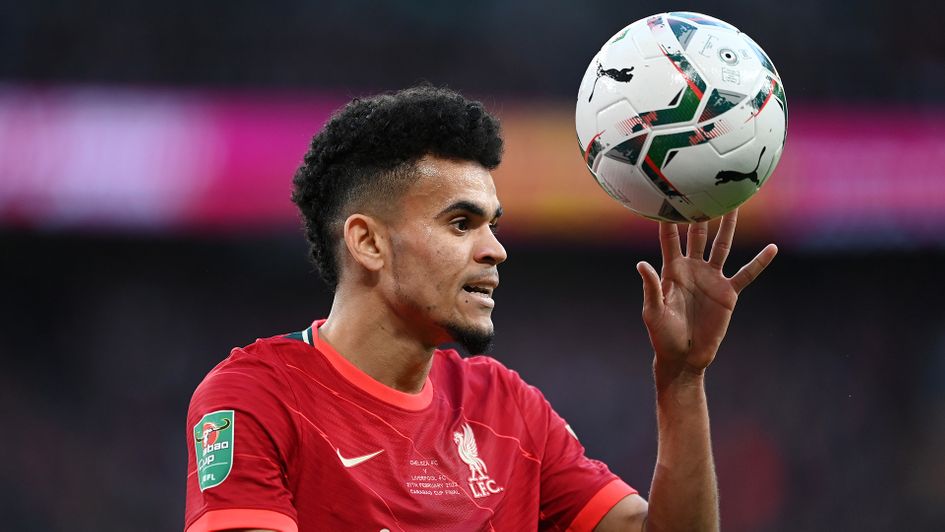- Article published prior to the Merseyside Derby
When Liverpool completed the £50m signing of Luis Diaz from Porto at the end of January it looked like a smart piece of business.
Planning ahead for next season, when they had a more realistic chance of challenging Manchester City for the Premier League title, and future-proofing should the protracted contract talks with Mohamed Salah not reach the desired conclusion.
Fast forward just seven weeks and the Colombian could hardly have made more of an impact at Anfield.
From nine points behind leaders City, albeit with a game in hand, to one point. Carabao Cup winners, FA Cup finalists, Champions League semi-finalists.
It's hard to remember a better mid-season arrival, in terms of instant success, since another Luis moved to Merseyside back in 2011. Diaz's four goals is already as many as Suarez scored in his first half-season with the club. Throw in his two assists and overall effect on the team that cannot be quantified in goal involvements alone and are we looking at the best ever January signing?
Should he help take Liverpool to an unfathomable and unprecedented quadruple, then how could anything else possibly be argued?
January 'a bad time for signings'
As well as the signing of Suarez more than a decade ago, Liverpool brought in Virgil van Dijk in January 2018. Unlike Diaz he took a little while to adjust to Jurgen Klopp's team, but has become quite possibly the best central defender in world football.
But other clubs are seemingly dismissive of January moves. Manchester United boss Ralf Rangnick warned the window was "not ideal for sustainable business'' when asked over Christmas - but are some teams missing a trick?
Should we be surprised by Diaz impact?
We know Liverpool take underlying data very seriously. When the Reds lifted the league title in 2020, the club told journalists about their unsung data science heroes working in the background to deliver their first Premier League crown.
Diaz would have immediately landed on their radars. The 25-year-old tore up the Portuguese Primeira Liga at the start of this season with 13 goals in 17 league games, with his expected goals (xG) total especially noteworthy.
Data from Infogol shows that in Diaz’s 17 games for Porto this season, he scored his baker’s dozen from an xG of 8.70, overperforming by 49%. Diaz’s xG per 90 minutes of 0.55 during the first half of the campaign was ridiculously high, an unsustainable hot streak in a league far inferior to the Premier League.
While we're working with a small sample size, Diaz's 0.55 xGI/95 (xG + xA) from his opening eight league games for Liverpool is seriously impressive.
What it brings in to sharp clarity, though, is just how good the rest of Liverpool's attack is.
He is level with Roberto Firmino, but trails Sadio Mane (0.77), Diogo Jota (0.93) and Salah (1.14) with the Egyptian's Premier League numbers particularly astonishing.
The fact Diaz's impact has been so sensational, and yet he still ranks as Liverpool's least creative attacking player in terms of goal involvements only serves to further underline their position as a uniquely powerful attacking team, one capable of completing a seemingly impossible quadruple.
Sometimes, though, it's fine to admit it's not all about data, not only in terms of the eye test but in a practical sense of just how much rotation Klopp is now able to do with his front three, taking them on to a whole new level of consistency.
January's best signing ever in what is fast becoming Liverpool's greatest season.
And still not a guaranteed starter.
